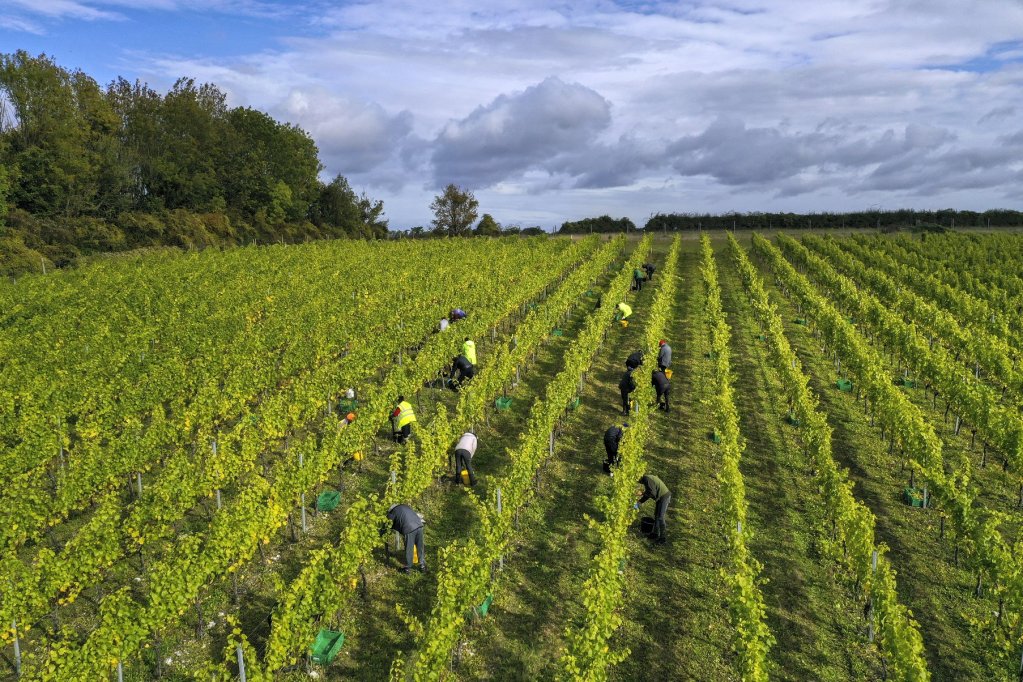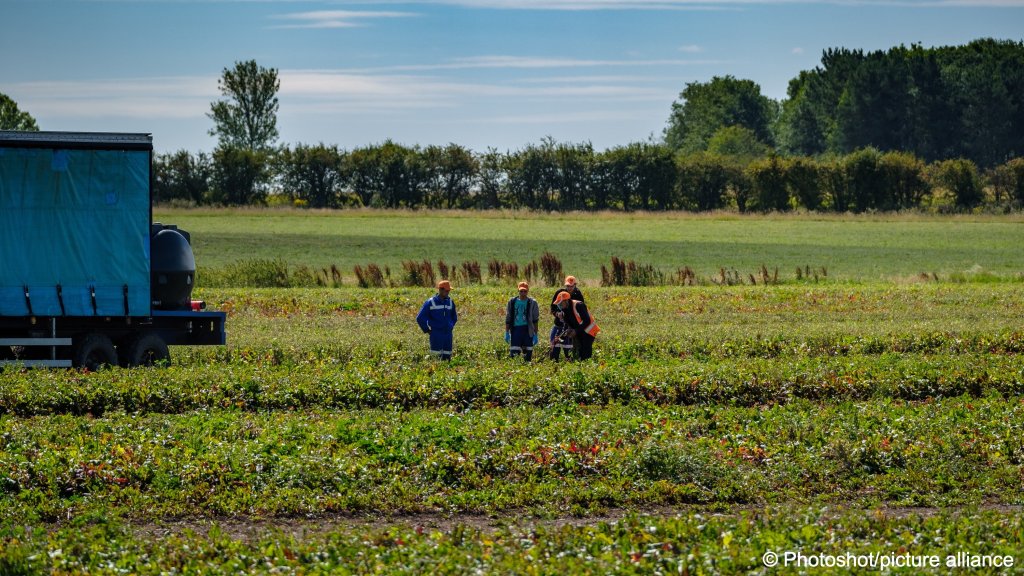Some of our audience have asked us how to apply for seasonal work in Europe via regular visa routes. Here's what you need to know about applying to work in Britain.
Seasonal work can take different forms in different countries, but many of the seasonal work visas available in Europe are linked to the agricultural sector.
Most seasonal work visas are only available for a certain period in the year, perhaps to cover the harvest, or to cover food processing for a specific period -- like Christmas time in the poultry sector, for example.
Generally, seasonal employers don’t allow applicants to work other jobs at the same time or before or after their period in the country. They also typically require visa holders to arrive to Europe shortly before the job is due to start and leave shortly after it ends.
Although you probably won't be able to work another job, some countries allow applicants to study or undertake training programs alongside their work. Make sure to check the specifics of your visa and country before you apply for a course.
Here are the most important things for seasonal work visa applicants to know.

How long you can stay
- Many of the visas are linked to the job and employer who brought you into the country. This should guarantee you work for the duration of your visa, but can become difficult if you have to leave the job due to ill treatment or dangerous conditions, for example.
Also read: Britain recruits migrant workers from new countries to pick harvest
- No employers should need to take your passport or identification documents for long periods of time, and certainly not for the duration of your stay.
- If you are being ill-treated or conditions are not as you were promised, you should be able to approach the authorities in the country where you are working, although this can be daunting when the conditions of your visa mean you can only stay if you are working for that employer.
- In such a situation, if you contact the International Labour Organization, a union representative for your sector or a human rights organization, they should be able to point you in the right direction to find help.
Seasonal work in Britain
- The UK government offers seasonal work visas for migrant workers to work in the horticultural sector picking fruit, vegetables or flowers for up to six months.
- They also offer a special visa from October 2 to December 31 to work in the poultry sector for the seasonal Christmas demand.
- Applications for poultry visas must be filled out by November 15 each year.
- You can apply for other seasonal worker visas at any time.
- In 2019, the government launched a special seasonal workers pilot scheme which has just been extended until 2024. In 2023, there were 45,000 horticulture work visas available.
- You will need a sponsor (employer or employment agency) who will provide you with a certificate of sponsorship reference number to use on your visa application.
Requirements
- You must be over 18.
- You must have enough money to support yourself in the UK. Normally that is defined as at least £1,270 (about €1,478) in your bank account. This money needs to have been present in your account for at least 28 days in a row. You will need to show proof of this on your visa application via supporting bank statements.
Also read: Rise in non-EU migrant workers in the UK
- You need a valid passport or other document that shows your identity and nationality.
- You need a certified translation of any documents (apart from your passport) that are not in English or Welsh.

Recruiting
- Many of the big agricultural businesses advertise directly, while others use agents who operate both within the UK and in countries of recruitment. One of the UK’s largest berry producers is Hall Hunter, with three locations in southern England
- Peak season for berries is June and July, but there are often farm jobs available from May to October and sometimes earlier in the year too.
Also read: Terms and acronyms that asylum seekers in the UK need to know
- You can apply for a visa up to three months before the day you are due to start work in the UK. After applying online, you can expect a decision within about three weeks. Applying for a visa costs £259 (about €301.50).
- Visa quotas for the harvest the following year are normally announced in December.
- Many farms rely on workers returning year after year and often recruit crews from similar countries or agencies, sometimes by word of mouth.
What to expect?
- The National Farmers Union NFU has information on its website about the seasonal workers scheme.
- They have produced a video about what to expect when working in the UK.
What you can and can't do with the visa
- Once you have a visa, you can only work in the job described in your certificate of sponsorship.
- You can study.
- You cannot take on a permanent job or a job that isn’t described in your certificate of sponsorship.
- You are not eligible for public funds
- You cannot bring your family members with you.
Exploitation and Modern Slavery
- Farmwell, the farming community network, have an article about seasonal workers and modern slavery on their website. They estimate that between 10,000 and 13,000 people might be being abused every year in the food and agricultural industry.
Also read: Modern slavery, Albanian migrants in UK back in focus
- If you are being abused, you can contact the police, the Gangmasters and Labour Abuse Authority (GLAA) or the Modern Slavery helpline: 08000121700.
Know your rights
- This website from Britain’s public service union Unison offers information about migrant worker rights in the UK. You can also call Unison directly at 08000857857.
- To work legally in the UK, all migrant workers should register for a National Insurance Number.
- You are protected by the same employment laws as all other workers. You should receive equal pay to British workers doing the same work.
Also read: Work scheme gives refugees in Britain a fresh start
- The national minimum wage is set and all employers must pay workers at least that in the UK. If you are being paid per piece of work you finish rather than per hour, your pay must be at least equivalent to the national minimum wage for the hours it takes you to do the work.
- You should receive a payslip showing all the tax and national insurance deductions taken from your pay.

- No other deductions should be taken from your wages unless they are written in your contract or you have agreed to them with your employer. Any agreement must be confirmed in writing.
- Even if you agreed to something, an employer cannot deduct so much money from your paycheck that you are earning less than minimum wage, unless the deductions are for accommodation.
- Even for accommodation, there are limits to how much an employer can deduct. If you think your employer is deducting too much for accommodation, call the Pay and Work Rights Helpline from UNISON at 08009172368.
Also read: Migrants in the UK, how safe is your workplace?
- Unison can also supply you with free immigration advice in tandem with the JCWI.
- If you are a migrant worker, you should also be paid statutory sick pay.
- If you work five days a week, you are entitled to 28 days of paid annual leave per year.
